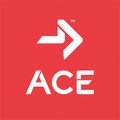Are you a personal trainer or health coach who is interested in starting a fitness business? Are you trying to expand your existing one, whether it’s in-person or an online fitness business? If so, it’s an interesting time in the fitness industry, given all of the changes that have occurred as a result of the COVID-19 pandemic. As you begin to think about your business-building plans, it’s important to be aware of the many new trends that have emerged, many of which will likely shape the industry as we move into the future.
According to Forbes, fitness-related technology is enabling new ways to deliver your services, including more personalization through artificial intelligence, virtual reality, gamification, wearable devices, online workouts and biohacking. Consumers are also back in gyms and studios in large numbers, as people are craving community and connection again. And yet, many are still enjoying the efficiency and convenience of working out at home using livestream classes, mobile apps and at-home equipment.
In addition to becoming knowledgeable on the latest trends, it’s important to do your research, and then evaluate and build around the following core areas, as well.
Passions: If you want to have a long-standing fitness business you truly care about, consider your own passions when determining the type of business you want to build. Determining whether your passions can help solve a problem or need in the market or connect to an important cause is a vital first step. Are you passionate about sports? Dance? Yoga? Mindfulness? Behavior change? Group fitness? One-on-one personal training? Group coaching?
Whatever they may be, take some time to think about how you leverage those passions to build a business that can help others optimize their lives and achieve their goals. If you can build a community around those passion points, even better.
When you have a deep connection to a passion, cause and/or community, you’re more likely to be successful over time and also stay resilient during tough times as a business owner or entrepreneur. If others gravitate toward your passions and you can create value for them, you’ll have a remarkable advantage in the market.
Core competencies and credentials: When building your business, you’ll also want to think about the core competencies and credentials you already have, as well as those you still need to attain. Do you have a degree in business, communications, exercise science, public health or some other field of study? Do you have experience with public speaking, facilitating groups, writing, coaching or technology? Are you trained and certified in group fitness, personal training, nutrition, behavior change, health coaching, yoga, dance or Pilates?
In other words, take the time to honestly assess your strengths and weakness, and then find ways to turn those weaknesses into opportunities to develop new knowledge or skills that will serve your business well. Getting certified by the American Council on Exercise is a great way to build your health, wellness and fitness knowledge and credibility in the key areas you’re passionate about and want to focus on within your business.
Target audience: Determining your target audience is another critical preliminary step in building your fitness business. It may change or expand over time, but it’s important to serve the needs of a specific audience in order to make a lasting impact, as opposed to trying to be all things to all people. You’ll also be able to create loyalty within your audience and can stand out as a business when you create authenticity and specificity. Therefore, spend some time mapping out the following key components of your target audience:
- Demographics: What demographic do you want to reach in terms of age, gender, interests, education, income, family life, lifestyle, etc.?
- Geography: What geographic locations are you interested in for your business? Are you focused on a local, national or global audience?
- Niche: What is your niche within your audience? For example, are you looking to work with moms with newborns, college athletes, elementary school–aged kids, seniors or another specific group?
Once you know who you want to reach, do your research and study your intended audience carefully. Take the time to understand their core needs, challenges, motivators and more. When you truly understand your audience, you’ll be able to determine how you can best help and support them through your work.
Products, services and content: Next, determine what products, services and content you want to offer. Are you interested in offering in-person classes, group coaching, online classes or sessions, a mobile app, workshops, training sessions or something else? Think about what you can offer that integrates with your passions, core competencies and credentials and solves a problem or need for your audience. And you don’t have to build everything out at once. In fact, it may be in your best interest to master one product, service or source of content at a time and add on from there.
This is an area of your business that will take hard work, time, investment and resources. Therefore, think through it carefully, talk to others in the industry, survey your desired audience for feedback and come up with a detailed strategy and plan before you proceed. Remember, the success of your business will depend on being able to create products, services and content that people want, need and are willing to pay for.
Business plan: All of the previous sections above can be included in your overall business plan, which will be an important guide for building out your business. Some additional areas to include and questions to ask yourself are as follows:
-
Mission, vision and core values: What will your mission statement be? What will be your long-term vision for your business? What will your core values be and what will your business stand for?
-
Operations plan: What will your workflow look like? How will your products, services and content be produced, distributed and sold? How will your business run on a day-to-day basis?
-
Financial plan: What will your pricing strategy be for your products, services and content? What will your revenue model be? What will your expenses be? What will your profit and loss statement look like?
-
Marketing plan: How will you reach your audience? What will your business name be? What will your logo look like? What will your brand colors be? Will you run online ads? Will you have a social media and website presence? Will you include email marketing? Will you leverage other forms of media?
-
Sales plan: What will your sales strategy be? What will your core message be? Will you sell to consumers or businesses? How will you prospect for new business and who will be your contact?
-
Technology needs: Do you need special software or technology platforms? How can you scale your business leveraging technology? How might you use AI or virtual assistants to create efficiencies in your business?
-
Competitive and SWOT analysis: Who would your key competitors be? What would your strengths, weaknesses, opportunities and threats be? How can you stand out from the competition and remain competitive over time?
Building a business takes hard work, strategic planning, organization and execution. However, it can be one of the most exciting and rewarding experiences of your career and life!
- If you are a health coach, check out Your Cheat Sheet to Starting a Health Coach Business.
- If you are a personal trainer, read ACE’s free Guide to Starting Your Own Personal Training Business.
- And, no matter what ACE Certification you hold, be sure to explore ACE Pro Compass for strategies and tools to start or expand your business and advance your career.




 by
by 




 by
by